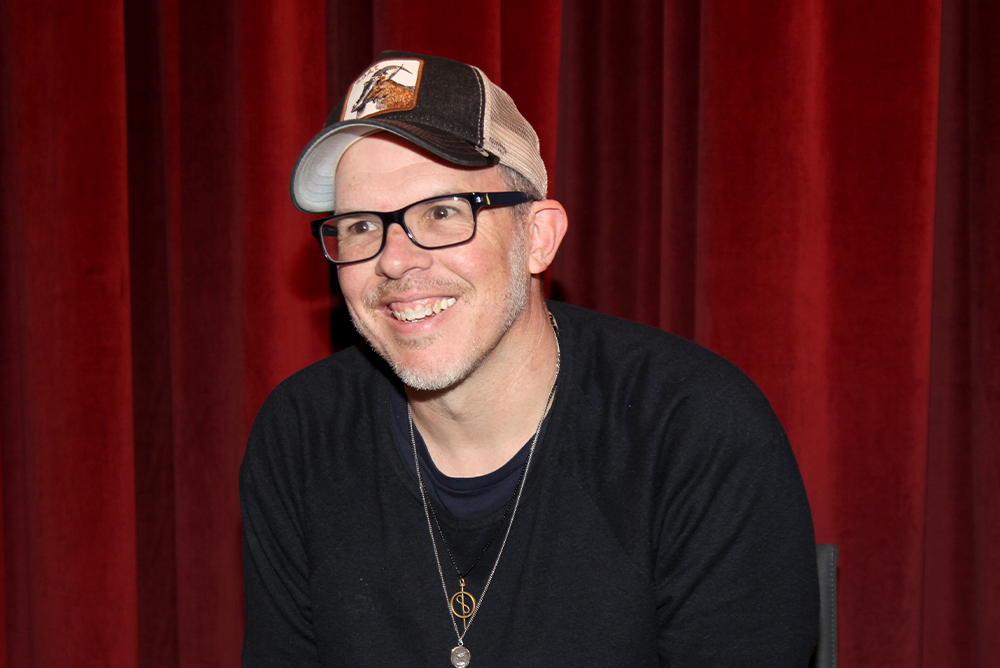
Photo by Aaron Salcido.
Steve Connell is a spoken word artist and entertainer. Before he took part in this week’s Zócalo/Da Poetry Lounge spoken word performance and conversation, “Does Democracy Need Poets?,” at ASU California Center in downtown Los Angeles, Connell spoke about “idea walks,” how failure teaches success, and a life lived in poetry.
When did you start writing poetry?
On some level as soon as I could write. I didn’t understand it necessarily as poetry. It wasn’t until my junior year when I took a creative writing class that it became more of a conscious decision to write poems.
Do you have a favorite place to go in Studio City?
Home! But Mirabelle is one of the illest spots. Me and my girl are in love with it.
How has poetry inspired you to action?
To some extent, poetry is writing the check and the action is how you cash it. With really great writing and really great poetry, I think the design is to reveal something, and the indicator—almost like a divining rod that you’re leaning toward water or the Spidey sense that tingles—is that you’re pushing further and further into something dangerous—whether it’s dangerous for you to admit or dangerous to say out loud in an audience. And on some level, you’re being guided by this inherent or intuitive belief or flat-out certainty that this is what’s right.
If you write it down, it’s a literal sort of mirror that holds you accountable. The stronger you write yourself into being, the more pressure to live up to that.
What is one thing you’ve learned the hard way?
It might be that the only way we learn is the hard way. We learn from scars and scar tissues, we learn from mistakes, and failure teaches success. So most meaningful shit you learn, you learn hard.
What are some of your writing habits?
Improv was part of my early foundation—whether comedy, freestyle, or just in life. That “yes and” approach is like you’re always learning. I hit a point where I realized I lived on a dividing line: half my life had been spent pre-laptop, pre-phone, pre-digital, and the other half not. So half my life taught me certain habits, and the other half is teaching me different ones. Now I go on what I call “idea walks.” Writing is always happening; it isn’t always about sitting in front of the screen, [it’s sometimes about] learning to go for a walk or go away from it. Just like there are certain poems that want to be typed, some on pencil on paper, some on phone, some on laptop. Some poems want a little wine with them, some coffee.
Who is somebody that has inspired you?
The two poets I’m performing with today: Beau and Sekou. Norman Lear. Kobe Bryant, Tupac, my parents, Ani DiFranco, Bill Hicks, Pablo Neruda. It’s a long list.
Is there something that you think exists in the world that can’t be expressed through poetry?
Well, no. You might fail, and there are things we’re still learning how to express. It might express it for me, but when I recite it, the way it makes you feel isn’t what I was trying to express. I think there are things that are harder to express. You can’t write about swimming in the ocean while swimming in the ocean. You can’t write about heartbreak while your heart is being broken. But that almost becomes like the research for the poem you’ll write. I think there are times where language struggles to work, but that’s largely because the people in the moment—whether you don’t want to hear it in that moment or I don’t have the words yet to say it. That also becomes sort of the process. A life lived in poetry is to constantly try to work against that challenge—you can’t say this, you can’t say that, there’s no way you can do this justice. But then that becomes: What if I can?



